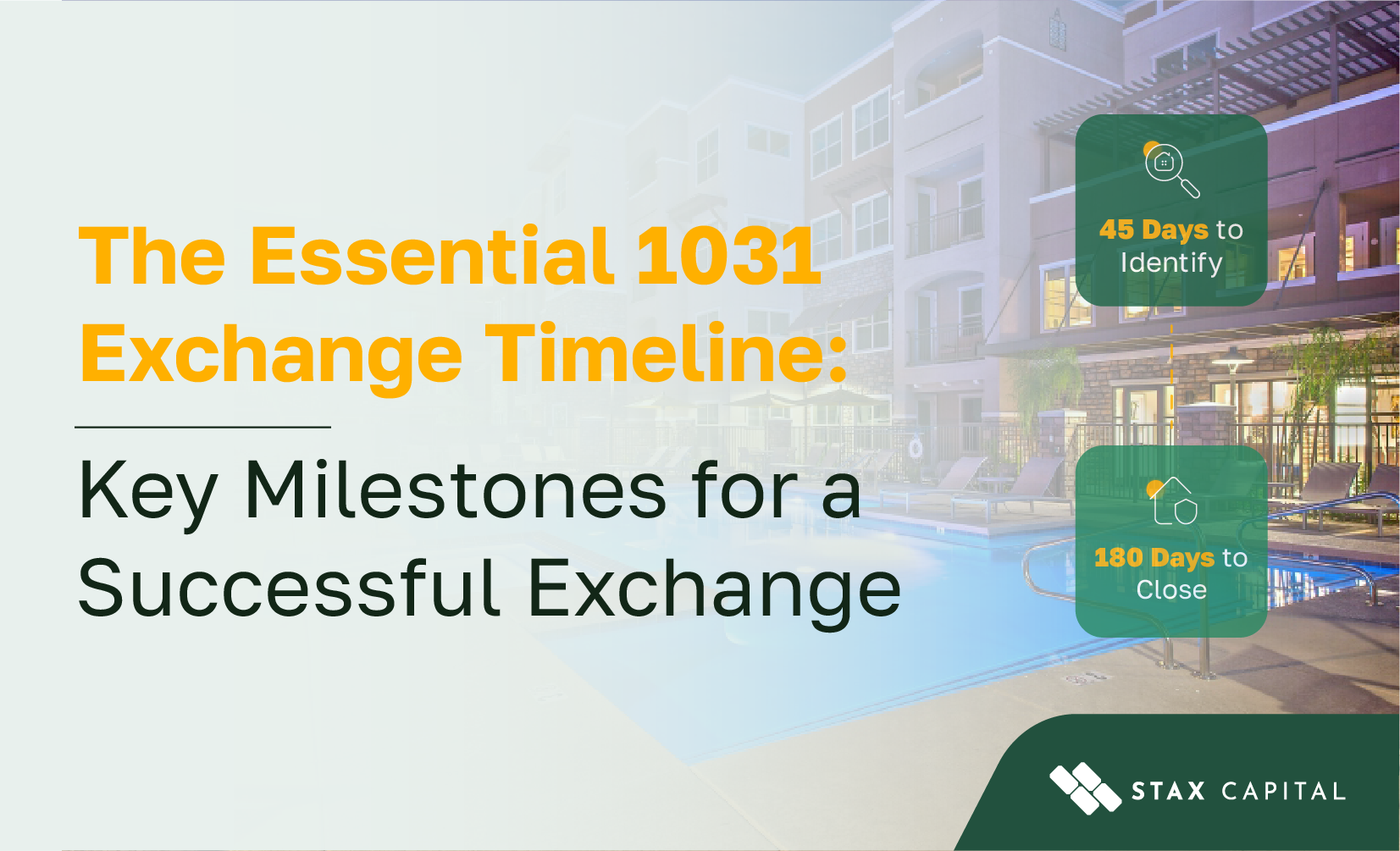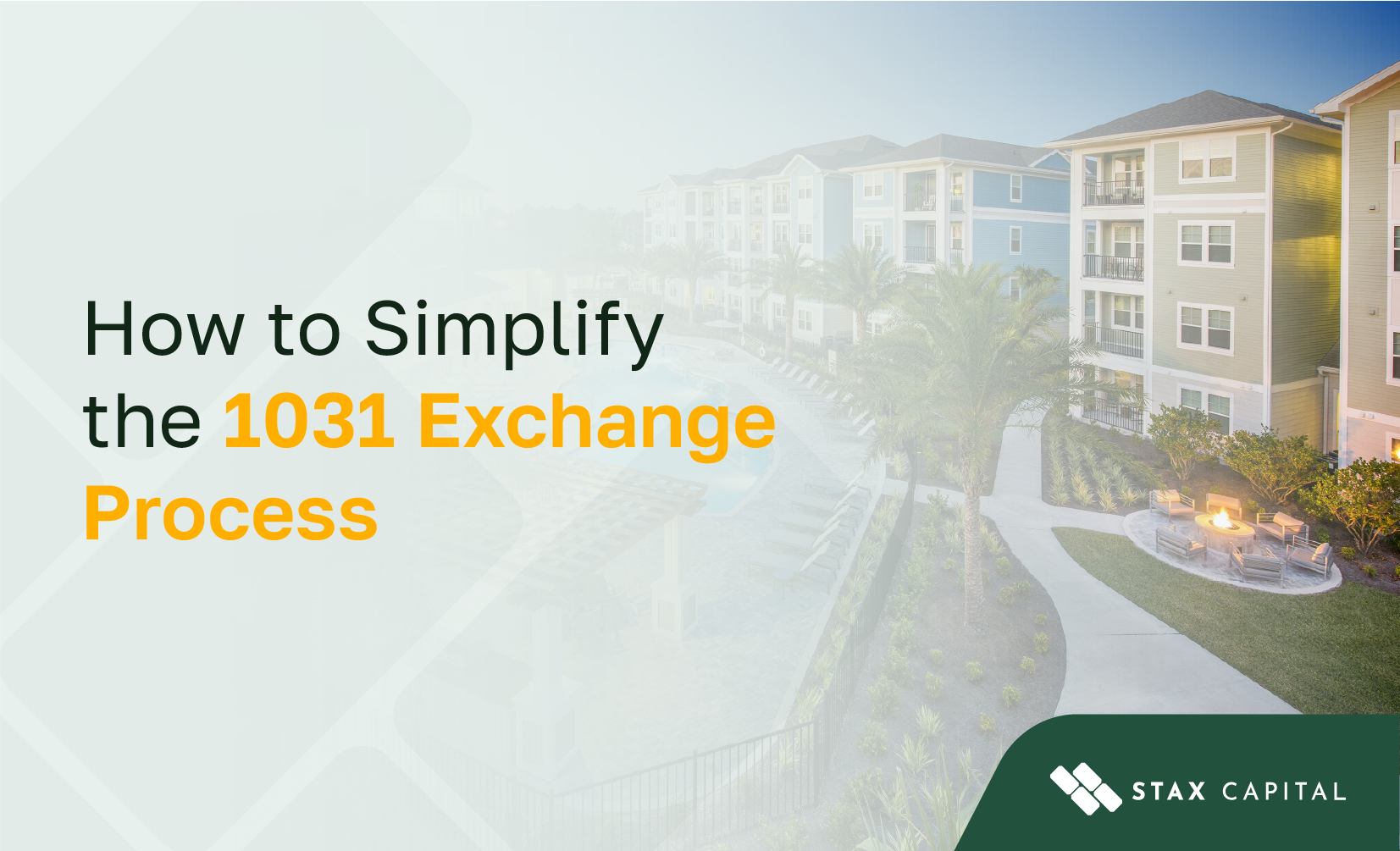Section 1031 Exchange Notice: Deadline Extended During COVID

Exchange Tips
Section 1031 Exchange Notice: Deadline Extended During COVID-19
The IRS announced a 1031 exchange notice for the extension of identification deadlines during the COVID-19 pandemic...
As the cliche goes, there are two constants in life: death and taxes.
But then, the coronavirus has radically altered almost every individual facet of life, and that includes taxes.
If you're in the midst of a 1031 exchange and you were caught in limbo when the pandemic hit, we're here to offer guidance. Or rather, to clarify the guidance offered by the recent IRS exchange notice. Here's what you need to know.
A Quick Recap of Section 1031
Section 1031, also known as the Starker Loophole, is a provision of the Internal Revenue Code that allows businesses and investment property owners to defer federal taxes on some exchanges of real estate.
A 1031 exchange is thus a type of real estate exchange where one investment property can be swapped for another and capital gains taxes are deferred. These properties must:
- Be held for business or investment purposes
- Be considered like-kind
In effect, you can change the form of your investment without cashing out or recognizing a capital gain, so the investment can continue in a tax-deferred status.
The President's Emergency Declaration
Ordinarily, real estate owners and investors make these exchanges all the time. Then the coronavirus pandemic happened, and it changed investors' ability to complete like-kind exchanges.
On March 13, 2020, the president issued an emergency declaration under the Robert T. Stafford Disaster Relief and Emergency Assistance Act in response to the multilayered effects of the pandemic on taxpayers.
Under that emergency declaration, the president instructed the Secretary of the Treasury, "to provide relief from tax deadlines to Americans who have been adversely affected by the COVID-19 emergency, as appropriate, pursuant to 26 U.S.C. 7508A(a)."
26 U.S.C. 7508A(a)
Section 7508A of the United States Code provides the Treasury Secretary or their delegate with the authority to postpone the time for performing certain acts under the Internal Revenue Code.
This is specifically done where the taxpayer is affected by a federally-declared disaster, a terroristic action, or military action. In those cases, the Secretary may specify a period of up to one year that may be disregarded in determining the tax liability of the taxpayer in question, with certain conditions.
On March 13, a broad coalition of real estate associations sent a letter to the Secretary requesting that the Treasury and the IRS take action to ensure real estate markets retained their liquidity. Specifically, they wanted to delay deadlines for like-kind exchanges that were underway when the pandemic struck.
IRS Exchange Notice 2020-23
This brings us to Notice 2020-23, an exchange notice issued by the Treasury and IRS shortly thereafter.
Ordinarily, the identification deadline for like-kind exchanges is 45 days after the downleg or sale property closing date. Due to the Coronavirus, however, the identification deadline (for those taxpayers who closed their sale on or after April 1, was deferred until July 15 in light of financial difficulties brought on by the pandemic.
What It Means
Notice 2020-23 is a response to the coalition letter and the changing conditions of the pandemic. This notice extends additional relief to taxpayers impacted by COVID-19.
The point of interest in this notice is Section III, which first states that any taxpayer performing time-sensitive actions outlined in 301.7508A-1(c)(1)(iv) –(vi) of the Procedure and Administration Regulations or Revenue Procedure 2018-58, 2018-50 IRB 990 is an Affected Taxpayer. That includes individuals in like-kind exchanges.
For Affected Taxpayers with specified filing and payment obligations, the deadline is automatically extended to July 15, in keeping with the tax extension offered earlier by the IRS.
Application of Notice 2020-23
Under these guidelines, if the taxpayer's 45-day window to identify a replacement property (forward exchange) or relinquished property (reverse exchange) expires on or after April 1, 2020, the taxpayer automatically has until July 15 to make the identification.
Similarly, if the taxpayer's 180-day window to purchase a replacement or relinquished property expires on or after April 1, 2020, and before July 15, 2020, the deadline is automatically extended to July 15.
So long as you meet the new terms, your like-kind exchange will be considered valid and will remain tax-deferred.
This extension is automatic. A taxpayer does not need to take any action to receive it. Keep in mind, however, that this extension does NOT apply retroactively.
Issues Under Section 17 of Rev. Proc. 2018-58
On the face of it, that sounds simple enough. The problem is that Notice 2020-23 conflicts with Section 17 of Rev. Proc. 2018-58 (Time for performing certain acts postponed by reason of service in a combat zone or a federally-declared disaster).
Rev. Proc. 2018-58 authorizes the extension of exchange periods pursuant to IRS guidance or notices, like Notice 2020-23. We noted that Notice 2020-23 places the deadline on July 15.
The problem lies in Section 17 of Rev. Proc. 2018-58.
Under that section, the last day of a 45-day exchange period and the last day of a 180-day exchange period that falls on or after the date of a federally-declared disaster are postponed by 120 days or the last day of the extension period authorized by IRS guidance, whichever is later.
However, no postponement may extend the due date beyond the deadline for the taxpayer's tax returns.
If you do the math, you'll realize the problem: Section 17 would theoretically set the deadlines to expire at a later date. Notice 2020-23 does not address this disparity or make a note of which deadline to consider valid. The IRS may offer additional guidance, but for now, none is forthcoming.
If in doubt, you're generally safest if you assume the earlier deadline is the required deadline and always defer to the guidance of your tax advisor.
Guiding Investment During Troubled Times
We know that these are difficult times. We also know that it can be hard to figure out where to turn when the whole world seems to be upside down. And where your money is concerned, the last thing you want is confusion.
If you need further assistance making sense of this exchange notice or other investment realities under COVID-19, we're here to guide you with accredited alternative investment options and guidance designed for real investors. Get in touch today to let us know how we can help.



Share: